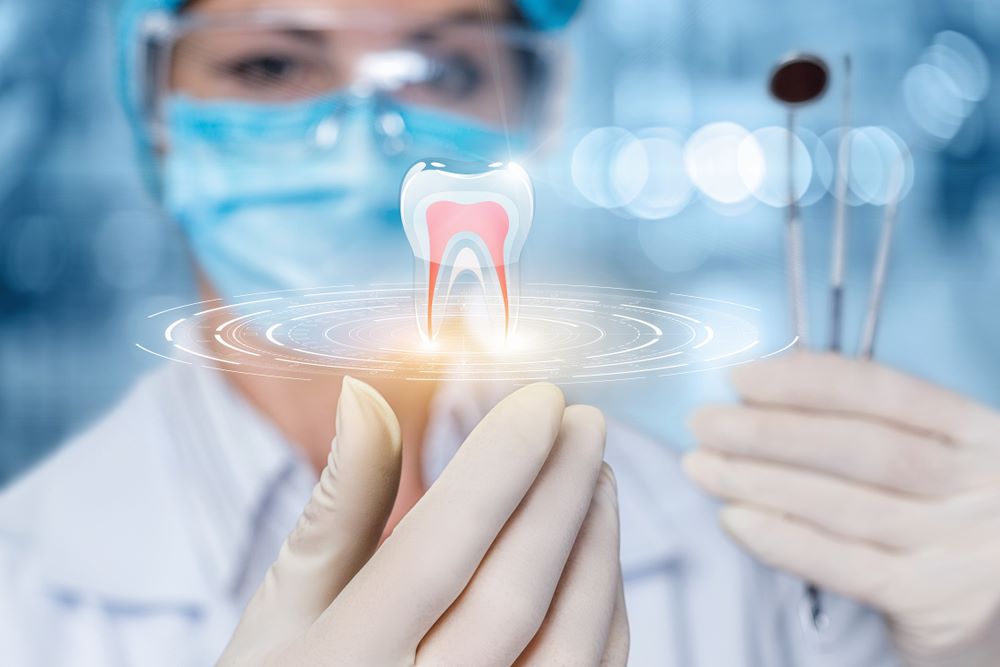Are Root Canals Bad For You?
Root canals are not inherently bad for you. They are often necessary to save a tooth and prevent further complications.
Root canals are a common dental procedure aimed at treating infected or damaged teeth. Many people worry about the potential risks associated with root canals, fueled by misconceptions and anecdotal evidence. Understanding the procedure’s benefits and drawbacks is essential for making informed decisions about your dental health.
While complications can arise, such as infections or persistent discomfort, these risks are generally outweighed by the advantages of preserving a natural tooth. A root canal can alleviate pain and prevent the spread of infection, making it a vital option for many patients. Consulting with a qualified dentist can help clarify any concerns and ensure safe treatment.
Demystifying Root Canal Concerns
Many people fear root canals due to common myths. These myths often overstate risks and pain. Some believe root canals cause serious health problems, like cancer. This is not true. In fact, root canals save teeth and prevent further issues.
Another fear is that the procedure is extremely painful. Most patients report feeling little to no discomfort. Dentists use effective anesthesia to ensure a pain-free experience. Misunderstandings about recovery time also create anxiety. Recovery from a root canal is often quick.
Concerns about bacteria lingering after the procedure are common. While some bacteria exist naturally, a root canal removes infected tissue. This process reduces the risk of complications and infections.
What Is A Root Canal?
A root canal is a dental procedure designed to treat infected or damaged teeth. The main purpose of root canal therapy is to remove infection from the tooth’s interior. This helps to alleviate pain and save the tooth from extraction.
Root canal therapy plays a crucial role in preserving dental health. By treating infections, it prevents the spread of bacteria to surrounding teeth and gums. Keeping the natural tooth is important for maintaining proper bite and chewing function. This procedure allows for normal tooth function, which is vital for overall oral health.
Busting Root Canal Myths
Many people believe that root canals can cause cancer or other serious health issues. This is a myth. Research shows no link between root canals and cancer. Root canals are safe when performed by a qualified dentist.
Some claim that root canals can lead to systemic diseases. This is not supported by scientific evidence. Root canals treat infections and save teeth, helping maintain oral health.
It’s essential to consult a dental professional if you have concerns. They can provide accurate information about the procedure and its safety. Trusting facts over myths is crucial for your dental health.
Root Canal Safety
Modern root canal procedures use advanced techniques and biocompatible materials. These improvements make the process safer and more effective. Most patients experience minimal discomfort during the treatment.
Success rates for root canals are high, typically around 85% to 97%. Complications can arise, such as infection or nerve damage. Proper aftercare significantly reduces these risks, ensuring a smoother recovery.
Long-term Effects Of Root Canals
Root canals can lead to reinfection. This happens when bacteria is left behind. If the tooth gets reinfected, it may require further treatment. Signs of reinfection include pain, swelling, and discomfort.
Another concern is the risk of tooth fractures. After a root canal, the tooth may become weaker. This can make it more susceptible to cracks or breaks. Regular dental check-ups can help monitor the tooth’s condition. Maintaining good oral hygiene is also essential.
| Concern | Description |
| Reinfection | Bacteria left behind can cause pain and swelling. |
| Tooth Fractures | Weakened tooth structure may lead to cracks or breaks. |
Alternatives To Root Canals
Extraction and implants are common alternatives to root canals. Extracting a tooth may seem like a quick fix, but it can lead to other issues. Implants replace the missing tooth but come with a higher cost.
Here’s a comparison of their benefits and drawbacks:
| Method | Benefits | Drawbacks |
| Extraction | Quick procedure, no infection risk | Missing tooth, affects bite and alignment |
| Implants | Looks and functions like natural teeth | Expensive, requires surgery and recovery |
Choosing between these options requires careful thought. Consulting with a dentist helps in making an informed decision.
Choosing The Right Dental Care
Finding a qualified endodontist is crucial for your dental health. Endodontists specialize in root canals and can provide the best care possible. Look for someone with strong credentials and positive patient reviews. A good endodontist will explain the procedure clearly and answer all your questions.
Seeking a second opinion can also be very helpful. It gives you a chance to compare different treatment options. Another professional may offer a different perspective on your condition. This ensures you make an informed choice about your dental care.
Never rush into a decision regarding root canals. Taking your time can lead to better outcomes and peace of mind. Your health is the most important factor to consider.
Aftercare And Recovery
After a root canal, proper care is essential for recovery. Keep the area clean to prevent infection. Use a soft-bristled toothbrush and avoid hard foods. Pain relief can be managed with over-the-counter medications like ibuprofen.
Swelling is normal but should reduce after a few days. If swelling persists, consult your dentist. Follow-up appointments are crucial to ensure healing. Always watch for signs of infection, such as increased pain or fever.
Seek further treatment if you experience severe discomfort or lasting symptoms. These may indicate a need for additional care. Staying proactive helps maintain your dental health.
Frequently Asked Questions
Why You Should Not Get A Root Canal?
Avoiding a root canal may lead to untreated infections. These infections can cause severe pain, swelling, and abscesses. Left unchecked, they could result in more extensive dental procedures or tooth loss. Weigh the risks against potential complications before deciding against this treatment.
Always consult a dental professional.
Do Root Canals Cause Health Problems?
Root canals do not inherently cause health problems. Complications may arise if infections occur post-treatment. Proper dental care minimizes risks. Most patients experience relief from pain and improved oral health after the procedure. Always consult your dentist for personalized advice and concerns.
Can A Root Canal Cause Problems Years Later?
Yes, a root canal can cause problems years later. Infections may develop, leading to pain and discomfort. If this occurs, retreatment or further interventions may be necessary to address the issue effectively. Regular dental check-ups can help monitor any long-term effects.
Is It Safe To Have A Root Canal On Your Teeth?
A root canal is generally safe and helps preserve your tooth. It treats infections effectively when performed by a qualified dentist. Complications can arise if the tooth becomes reinfected. Consult your dentist for personalized advice and peace of mind regarding your dental health.
Conclusion
Root canals are often misunderstood. While concerns about potential health risks exist, many dental professionals emphasize their importance in preserving teeth. Ignoring dental infections can lead to more severe issues. Always consult with a qualified dentist to weigh the benefits and risks.
Your oral health should always be a priority.




